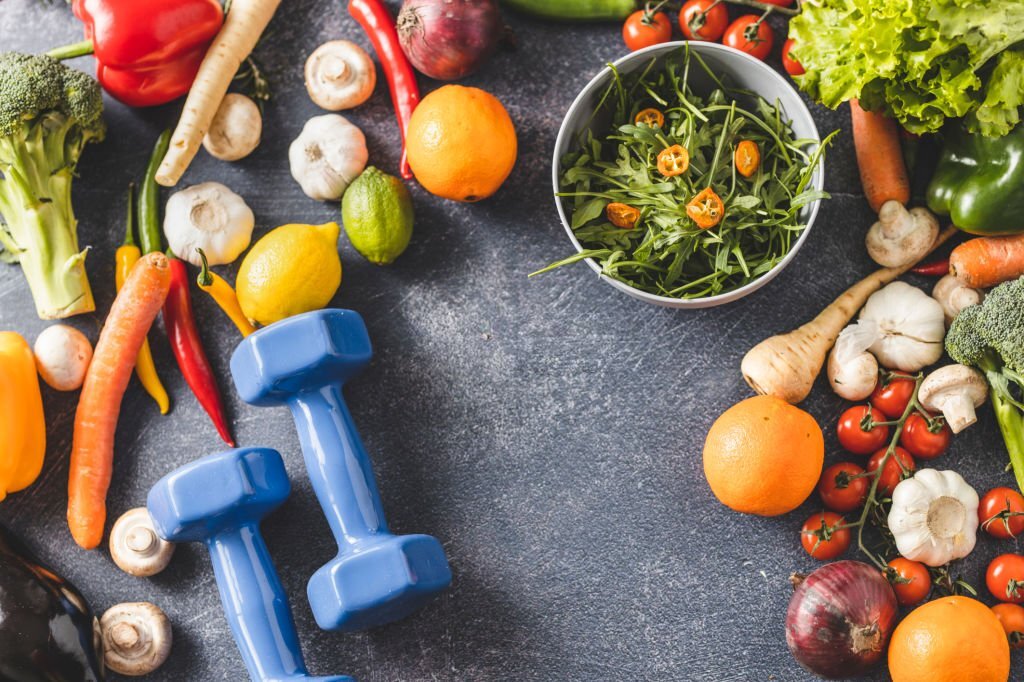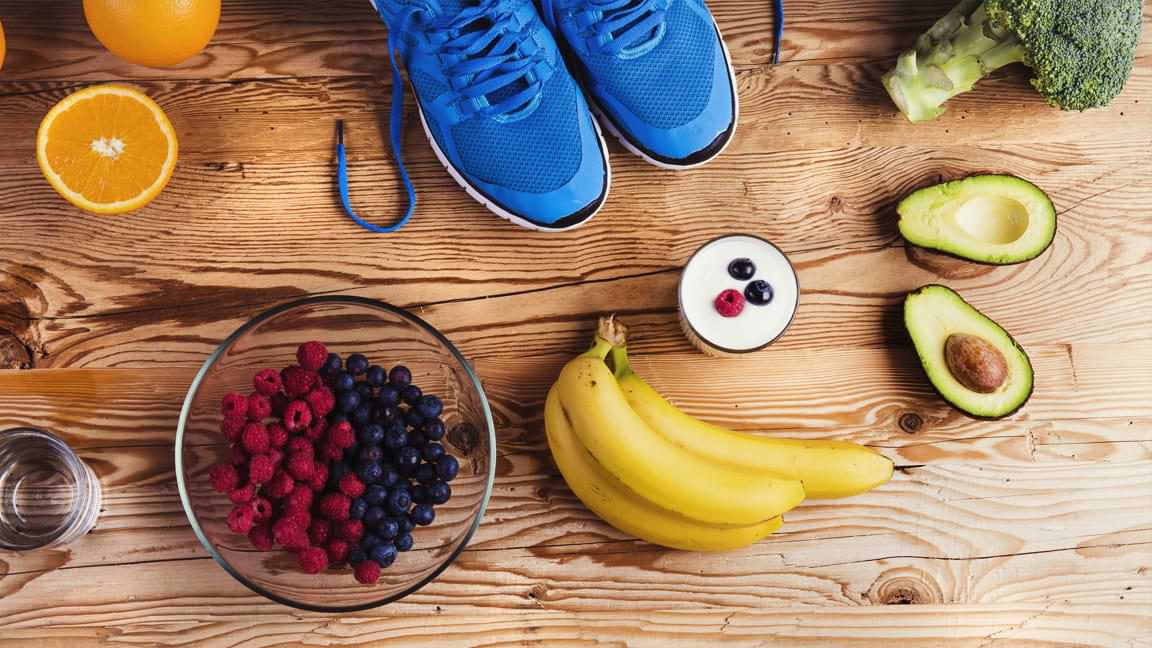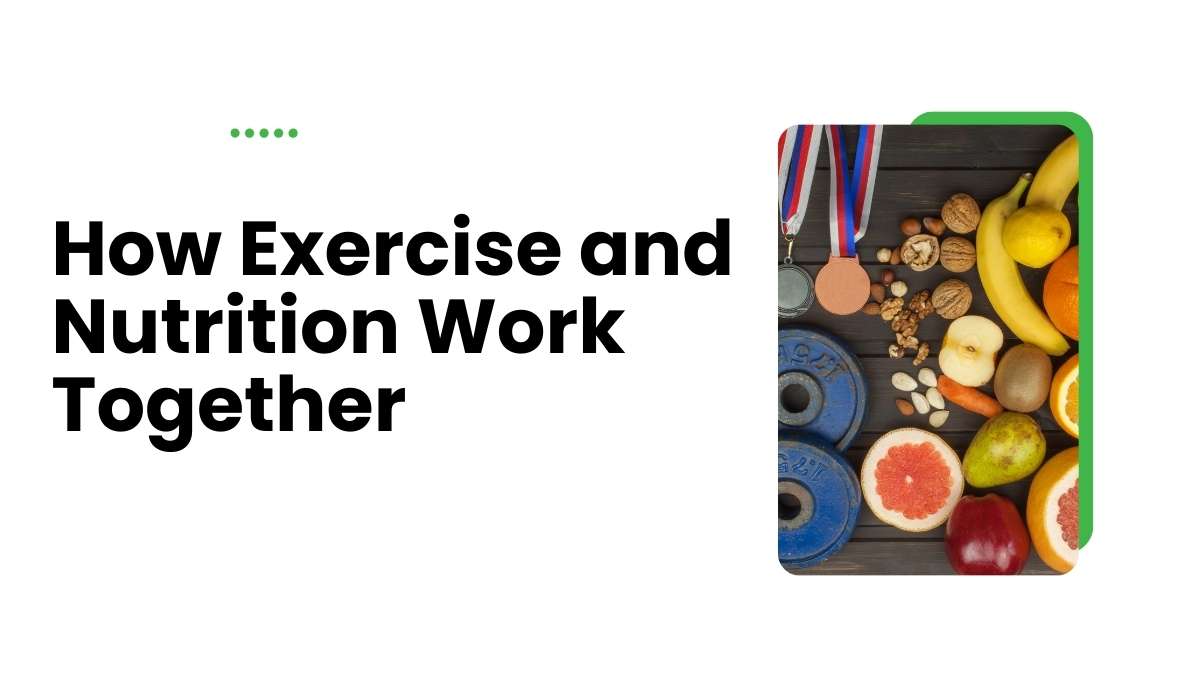How Exercise and Nutrition Work Together. Exercise and nutrition work together synergistically to provide the body with the necessary fuel and nutrients it needs to perform at its best. By combining regular physical activity with a balanced diet, you can maximize your results and improve both your physical and mental well-being. In this article, we will explore the benefits of exercise, the importance of nutrition, pre-workout nutrition strategies, post-workout recovery techniques, and common misconceptions about exercise and nutrition. Let’s dive in!
Understanding the relationship between exercise and nutrition
Regular exercise and proper nutrition are closely intertwined, working together to support overall health and well-being. When it comes to understanding the relationship between exercise and nutrition, it’s crucial to recognize that the food we eat provides the fuel our bodies need for physical activity, while exercise enhances nutrient absorption and utilization. By combining these two elements, we can optimize our energy levels, promote muscle growth and repair, maintain a healthy weight, and improve both our physical performance and mental clarity. Let’s explore this dynamic connection further to unlock the full potential of exercise and nutrition.
Benefits of Exercise
Regular exercise offers numerous benefits for both physical health and mental well-being. It helps improve cardiovascular health, increase muscle strength and endurance, and enhance flexibility and balance. Exercise also plays a vital role in managing weight, reducing the risk of chronic diseases such as heart disease and diabetes, and boosting immune function. Additionally, engaging in regular physical activity promotes mental well-being by reducing stress, anxiety, and symptoms of depression. Incorporating exercise into your lifestyle can have a profound impact on your overall health and quality of life.
Impact of exercise on physical health

Regular exercise has a significant impact on physical health. It improves cardiovascular health, increases muscle strength and endurance, and enhances flexibility and balance. Exercise also helps in managing weight, reducing the risk of chronic diseases like heart disease and diabetes, and boosting immune function. It is an essential component of a healthy lifestyle and can greatly improve overall well-being. Incorporating regular physical activity into your routine is key to reaping these benefits and maintaining optimal physical health.
Role of exercise in mental well-being
Regular exercise not only benefits physical health but also plays a crucial role in mental well-being. Engaging in physical activity releases endorphins, which are known as “feel-good” hormones, helping to reduce stress, anxiety, and symptoms of depression. Exercise can also improve cognitive function, boost self-esteem, and enhance overall mood and mental resilience. Incorporating regular exercise into your routine can have a positive impact on your mental health and contribute to a balanced and fulfilling life.
Importance of Nutrition
Proper nutrition is crucial for optimal performance during exercise, as it provides the body with essential nutrients and energy. A well-balanced diet that includes carbohydrates, proteins, and fats helps fuel the body and supports muscle growth and repair. Adequate hydration is also key to maintaining endurance and preventing fatigue. By prioritizing nutrition alongside exercise, you can maximize your results, improve recovery time, and enhance overall physical performance. Remember to consult a healthcare professional or registered dietitian for personalized advice based on your specific needs and goals.
Essential nutrients for optimal performance
To achieve optimal performance during exercise, it is crucial to ensure that your body receives the essential nutrients it needs. These nutrients play a vital role in providing energy, supporting muscle growth and repair, and enhancing overall physical performance. Carbohydrates provide fuel for the body, proteins aid in muscle development, and fats help maintain energy levels. Including a variety of fruits, vegetables, whole grains, lean proteins, and healthy fats in your diet can help you meet these nutritional requirements and maximize your exercise results. Stay hydrated and consult professionals for personalized advice.
How nutrition supports exercise goals
Proper nutrition plays a crucial role in supporting exercise goals. By providing the body with essential nutrients, it optimizes energy levels, aids in muscle growth and repair, and enhances overall performance. To support exercise goals, focus on consuming a balanced diet that includes carbohydrates for fuel, proteins for muscle development, and healthy fats for sustained energy. Incorporate a variety of fruits, vegetables, whole grains, lean proteins, and healthy fats into your meals to ensure you’re getting the necessary nutrients to maximize your exercise results. Stay hydrated and consult professionals for personalized advice.
Pre-Workout Nutrition

To fuel your body for exercise, focus on consuming a balanced pre-workout meal that includes carbohydrates for energy, lean proteins for muscle development, and healthy fats for sustained endurance. Aim to eat this meal 1-3 hours before your workout to ensure proper digestion. Consider including foods like whole grain toast with almond butter, a banana, or Greek yogurt with berries and granola. Stay hydrated by drinking water before and during your workout. Remember to consult a professional for personalized advice based on your specific needs and goals.
Fueling your body for exercise
To fuel your body for exercise, focus on consuming a balanced pre-workout meal that includes carbohydrates for energy, lean proteins for muscle development, and healthy fats for sustained endurance. Aim to eat this meal 1-3 hours before your workout to ensure proper digestion. Consider including foods like whole grain toast with almond butter, a banana, or Greek yogurt with berries and granola. Stay hydrated by drinking water before and during your workout. Remember to consult a professional for personalized advice based on your specific needs and goals.
Key components of a pre-workout meal
To fuel your body for exercise, focus on consuming a balanced pre-workout meal with carbohydrates for energy, lean proteins for muscle development, and healthy fats for sustained endurance. Include foods like whole grain toast with almond butter, a banana, or Greek yogurt with berries and granola. Aim to eat this meal 1-3 hours before your workout for proper digestion. Stay hydrated by drinking water before and during your workout. Remember to consult a professional for personalized advice based on your specific needs and goals.
Post-Workout Recovery
After a challenging workout, proper post-workout recovery is essential for optimal results. Replenish your energy stores and promote muscle repair by consuming a balanced meal that includes carbohydrates for glycogen replenishment, protein for muscle recovery, and healthy fats for inflammation reduction. Aim to consume this meal within 30 minutes to an hour after your workout to maximize nutrient absorption. Hydrate with water or a sports drink to replace lost fluids and electrolytes. Remember to listen to your body’s signals and adjust your post-workout nutrition accordingly.
Nutritional strategies for post-exercise recovery
To optimize your post-exercise recovery, implement these nutritional strategies:
- Consume a balanced meal with carbohydrates, protein, and healthy fats within 30 minutes to an hour after your workout.
- Focus on replenishing energy stores by including carbohydrates for glycogen replenishment.
- Promote muscle repair with protein-rich foods or supplements.
- Incorporate healthy fats to reduce inflammation and support overall recovery.
- Hydrate with water or a sports drink to replace lost fluids and electrolytes.
Remember to adjust your post-workout nutrition based on your body’s needs and listen to its signals for optimal results.
Replenishing energy stores and promoting muscle repair

To optimize your post-exercise recovery, implement these nutritional strategies:
- Consume a balanced meal with carbohydrates, protein, and healthy fats within 30 minutes to an hour after your workout.
- Focus on replenishing energy stores by including carbohydrates for glycogen replenishment.
- Promote muscle repair with protein-rich foods or supplements.
- Incorporate healthy fats to reduce inflammation and support overall recovery.
- Hydrate with water or a sports drink to replace lost fluids and electrolytes.
Remember to adjust your post-workout nutrition based on your body’s needs and listen to its signals for optimal results.
Conclusion of How Exercise and Nutrition Work Together
Maximize your exercise and nutrition efforts by following a balanced approach. Remember to fuel your body with a pre-workout meal and replenish energy stores post-exercise. Focus on consuming carbohydrates, protein, and healthy fats to support muscle repair and reduce inflammation. Hydrate with water or sports drinks to replace lost fluids and electrolytes. By understanding the relationship between exercise and nutrition and implementing these strategies, you can optimize your performance, promote overall well-being, and achieve your fitness goals. Keep up the great work!
Maximizing results through a balanced approach

To maximize results through a balanced approach, it is crucial to focus on both exercise and nutrition. This involves creating a well-rounded exercise routine that includes cardiovascular training, strength training, and flexibility exercises. Additionally, it’s important to fuel your body with a combination of carbohydrates, protein, and healthy fats to support muscle repair and recovery. Hydration is also key for optimal performance. By combining regular exercise with a nutritious diet, you can achieve your fitness goals and improve overall well-being.
Common misconceptions about exercise and nutrition
Common misconceptions about exercise and nutrition can hinder your progress and prevent you from achieving your fitness goals. It’s important to debunk these misconceptions and understand the truth behind them. One common misconception is that you need to follow a strict diet or eliminate certain food groups to see results. In reality, a balanced approach that includes a variety of foods is key. Another misconception is that exercise alone can make up for poor nutrition choices. While exercise is important, it must be combined with proper nutrition for optimal results.
For More Blogs visit Aerns

